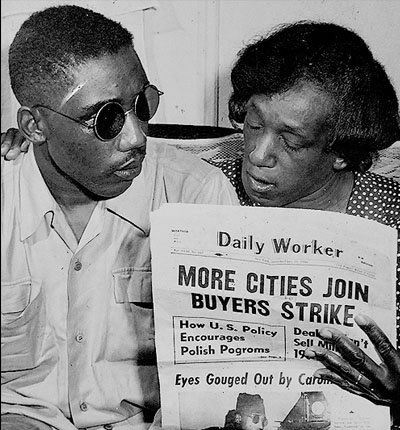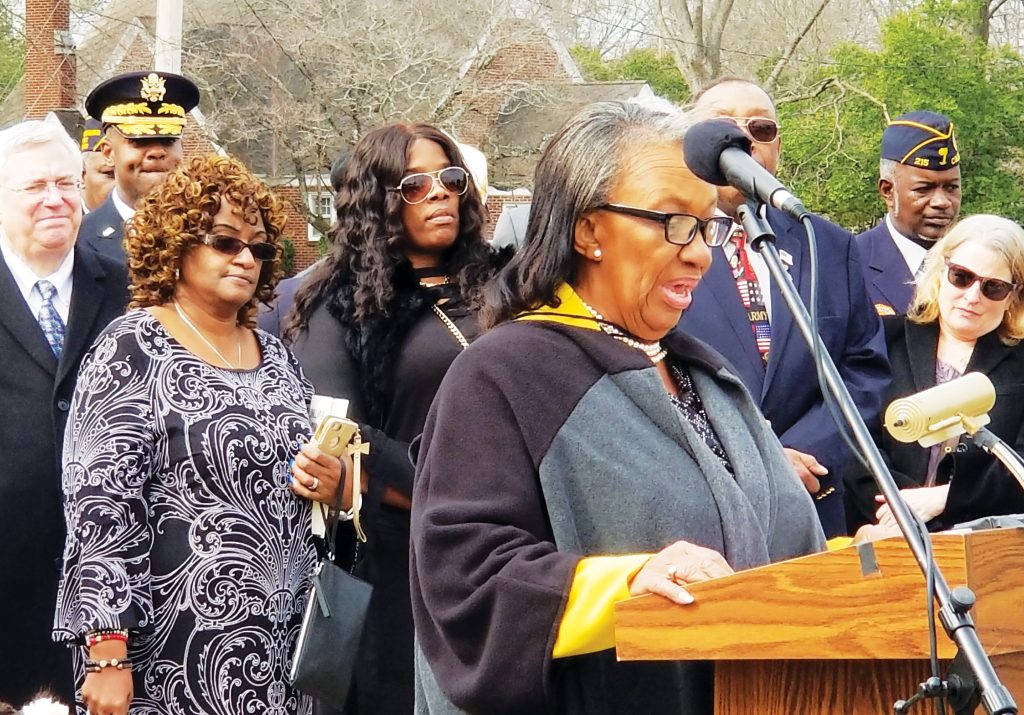Winnsboro native, Army Sergeant Isaac Woodard, a World War II veteran who was savagely beaten at the hands of a callous, intolerant sheriff, helped inspire civil rights in America.
WINNSBORO – Isaac Woodard, Jr. was born in Fairfield County, but grew up in Goldsboro, North Carolina. He enlisted in the U.S. Army on Oct. 14, 1942, at Fort Jackson, and served in the Pacific as part of a labor battalion. Woodard received an Honorable Discharge at Camp Gordon, GA, in early February, 1946.
Along with a contingent of other discharged soldiers, black and white, Woodard boarded a Greyhouse bus on Feb. 12 to travel back home to North Carolina.

A conflict was triggered when the bus driver belittled the Army veteran for asking if there would be enough time for a bathroom break during a scheduled bus stop. It is reported that Woodard argued back. At the next stop, Woodard was met by Chief of Police Linwood Shull of Batesburg who, along with his deputies, beat Woodard savagely with their nightsticks.
Woodard was later charged with drunk and disorderly conduct before finally being taken to a veteran’s hospital in Columbia.
The NAACP took up Woodard’s case in the spring of 1946, pressing military officials to provide assistance to the gravely injured veteran while also calling for legal action against Chief Shull.
By September of that year, NAACP officials met with President Harry Truman who expressed outrage over this assault on a veteran. Shull was tried in federal court but released after the jury deliberated only 30 minutes.
As news of the attack circulated in the national media, President Harry Truman created the first President’s Committee on Civil Rights (PCCR) which published, ‘To Secure These Rights’ in 1947.
This groundbreaking report led to the desegregation of the military in 1948 and new federal attention to racial inequality as a matter of both domestic justice and out of concern for Cold War politics.
For many Americans, Isaac Woodard became a sympathetic figure representing the larger conflicts of Jim Crow emerging after World War II. The public’s response to the vicious attack upon Woodard, as well as the response of President Harry Truman, signaled a major shift in public support for civil rights during the 1940’s.
Isaac Woodard died in September, 1992 in the Bronx, New York where he lived with his nephew, Robert Young, and his family. But Woodard’s death was not the end of his legacy.
On June 7, 2018, Robert M. Cook II, Municipal Court Judge for the Town of Batesburg-Leesville, issued an order re-opening the case against Woodard and subsequently dismissed all charges against him. The order was granted upon receiving a request from Town Attorney Christian Spradly and Chief of Police Wallace Oswald.
The Town also moved to dismiss the charges against Woodard.

In February, 2019, Batesburg-Leesville officials held a ceremony commemorating and honoring Woodard with a plaque that now stands in the town. Winnsboro Mayor Roger Gaddy and Fairfield County Councilwoman Bertha Goins were on hand to speak to Woodard’s place in history.
“It is with great honor that we are proud to see this historical marker be placed in Batesburg-Leesville to honor and acknowledge Isaac Woodward, Jr.’s life and service,” Gaddy said.
“It was a beautiful, emotional, meaningful ceremony,” Goins said. “It did not undo the crime, the injustice or the injury, but it brought well-deserved honor to this man who, through his pain and suffering, made so much possible for the rest of us.
“It was a privilege to be part of it,” Goins said.










